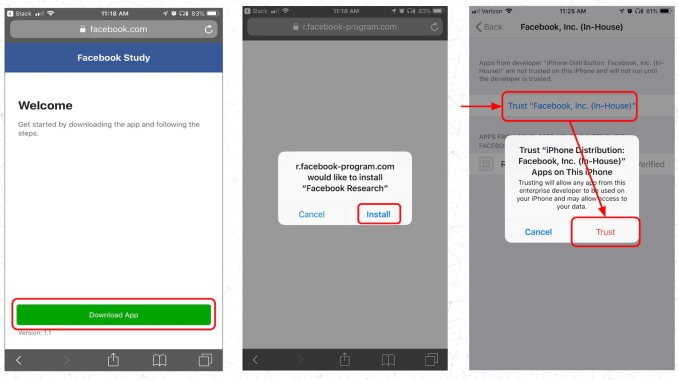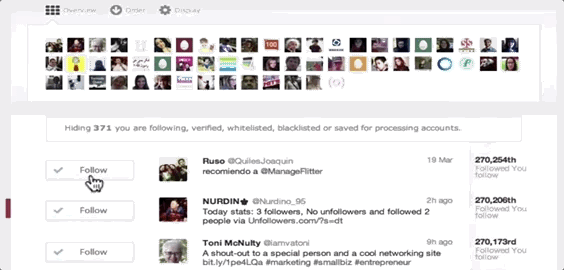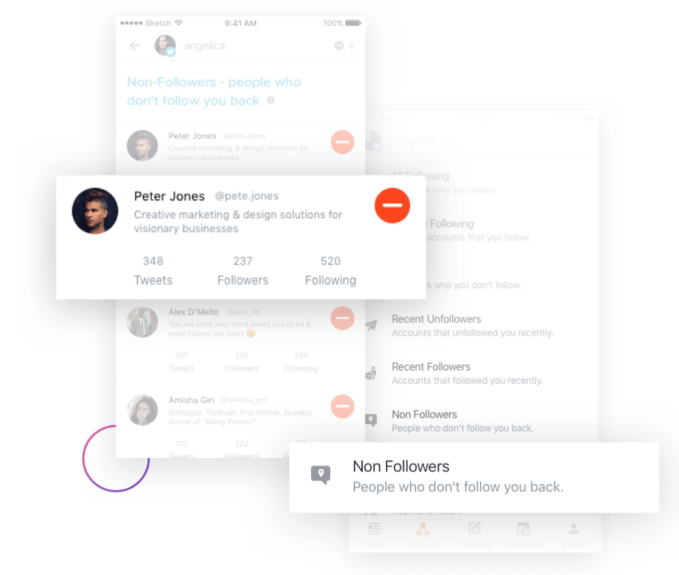
Featured 1
Curabitur et lectus vitae purus tincidunt laoreet sit amet ac ipsum. Proin tincidunt mattis nisi a scelerisque. Aliquam placerat dapibus eros non ullamcorper. Integer interdum ullamcorper venenatis. Pellentesque habitant morbi tristique senectus et netus et malesuada fames ac turpis egestas.

Featured 2
Curabitur et lectus vitae purus tincidunt laoreet sit amet ac ipsum. Proin tincidunt mattis nisi a scelerisque. Aliquam placerat dapibus eros non ullamcorper. Integer interdum ullamcorper venenatis. Pellentesque habitant morbi tristique senectus et netus et malesuada fames ac turpis egestas.

Featured 3
Curabitur et lectus vitae purus tincidunt laoreet sit amet ac ipsum. Proin tincidunt mattis nisi a scelerisque. Aliquam placerat dapibus eros non ullamcorper. Integer interdum ullamcorper venenatis. Pellentesque habitant morbi tristique senectus et netus et malesuada fames ac turpis egestas.

Featured 4
Curabitur et lectus vitae purus tincidunt laoreet sit amet ac ipsum. Proin tincidunt mattis nisi a scelerisque. Aliquam placerat dapibus eros non ullamcorper. Integer interdum ullamcorper venenatis. Pellentesque habitant morbi tristique senectus et netus et malesuada fames ac turpis egestas.

Featured 5
Curabitur et lectus vitae purus tincidunt laoreet sit amet ac ipsum. Proin tincidunt mattis nisi a scelerisque. Aliquam placerat dapibus eros non ullamcorper. Integer interdum ullamcorper venenatis. Pellentesque habitant morbi tristique senectus et netus et malesuada fames ac turpis egestas.
Saturday, February 2, 2019
Facebook warned over privacy risks of merging messaging platforms
Facebook’s lead data protection regulator in Europe has asked the company for an “urgent briefing” regarding plans to integrate the underlying infrastructure of its three social messaging platforms.
In a statement posted to its website late last week the Irish Data Protection Commission writes: “Previous proposals to share data between Facebook companies have given rise to significant data protection concerns and the Irish DPC will be seeking early assurances that all such concerns will be fully taken into account by Facebook in further developing this proposal.”
Last week the New York Times broke the news that Facebook intends to unify the backend infrastructure of its three separate products, couching it as Facebook founder Mark Zuckerberg asserting control over acquisitions whose founders have since left the building.
Instagram founders, Kevin Systrom and Mike Krieger, left Facebook last year, as a result of rising tensions over reduced independence, according to our sources.
While WhatsApp’s founders left Facebook earlier, with Brian Acton departing in late 2017 and Jan Koum sticking it out until spring 2018. The pair reportedly clashed with Facebook execs over user privacy and differences over how to monetize the end-to-end encrypted platform.
Acton later said Facebook had coached him to tell European regulators assessing whether to approve the 2014 merger that it would be “really difficult” for the company to combine WhatsApp and Facebook user data.
In the event, Facebook went on to link accounts across the two platforms just two years after the acquisition closed. It was later hit with a $122M penalty from the European Commission for providing “incorrect or misleading” information at the time of the merger. Though Facebook claimed it had made unintentional “errors” in the 2014 filing.
A further couple of years on and Facebook has now graduated to seeking full platform unification of separate messaging products.
“We want to build the best messaging experiences we can; and people want messaging to be fast, simple, reliable and private,” a spokesperson told us when we asked for a response to the NYT report. “We’re working on making more of our messaging products end-to-end encrypted and considering ways to make it easier to reach friends and family across networks.”
“As you would expect, there is a lot of discussion and debate as we begin the long process of figuring out all the details of how this will work,” the spokesperson added, confirming the substance of the NYT report.
There certainly would be a lot of detail to be worked out. Not least the feasibility of legally merging user data across distinct products in Europe, where a controversial 2016 privacy u-turn by WhatsApp — when it suddenly announced it would after all share user data with parent company Facebook (despite previously saying it would never do so), including sharing data for marketing purposes — triggered swift regulatory intervention.
Facebook was forced to suspend marketing-related data flows in Europe. Though it has continued sharing data between WhatsApp and Facebook for security and business intelligence purposes, leading to the French data watchdog to issue a formal notice at the end of 2017 warning the latter transfers also lack a legal basis.
A court in Hamburg, Germany, also officially banned Facebook from using WhatsApp user data for its own purposes.
Early last year, following an investigation into the data-sharing u-turn, the UK’s data watchdog obtained an undertaking from WhatsApp that it would not share personal data with Facebook until the two services could do so in a way that’s compliant with the region’s strict privacy framework, the General Data Protection Regulation (GDPR).
Facebook only avoided a fine from the UK regulator because it froze data flows after the regulatory intervention. But the company clearly remains on watch — and any fresh moves to further integrate the platforms would trigger instant scrutiny, evidenced by the shot across the bows from the DPC in Ireland (Facebook’s international HQ is based in the country).
The 2016 WhatsApp-Facebook privacy u-turn also occurred prior to Europe’s GDPR coming into force. And the updated privacy framework includes a regime of substantially larger maximum fines for any violations.
Under the regulation watchdogs also have the power to ban companies from processing data. Which, in the case of a revenue-rich data-mining giant like Facebook, could be a far more potent disincentive than even a billion dollar fine.
We’ve reached out to Facebook for comment on the Irish DPC’s statement and will update this report with any response.
Here’s the full statement from the Irish watchdog:
While we understand that Facebook’s proposal to integrate the Facebook, WhatsApp and Instagram platforms is at a very early conceptual stage of development, the Irish DPC has asked Facebook Ireland for an urgent briefing on what is being proposed. The Irish DPC will be very closely scrutinising Facebook’s plans as they develop, particularly insofar as they involve the sharing and merging of personal data between different Facebook companies. Previous proposals to share data between Facebook companies have given rise to significant data protection concerns and the Irish DPC will be seeking early assurances that all such concerns will be fully taken into account by Facebook in further developing this proposal. It must be emphasised that ultimately the proposed integration can only occur in the EU if it is capable of meeting all of the requirements of the GDPR.
Facebook may be hoping that extending end-to-end encryption to Instagram as part of its planned integration effort, per the NYT report, could offer a technical route to stop any privacy regulators’ hammers from falling.
Though use of e2e encryption still does not shield metadata from being harvested. And metadata offers a rich source of inferences about individuals which, under EU law, would certainly constitute personal data. So even with robust encryption across the board of Instagram, Facebook and WhatsApp the unified messaging platforms could still collectively leak plenty of personal data to their data-mining parent.
Facebook’s apps are also not open source. So even WhatsApp, which uses the respected Signal Protocol for its e2e encryption, remains under its control — with no ability for external audits to verify exactly what happens to data inside the app (such as checking what data gets sent back to Facebook). Users still have to trust Facebook’s implementation but regulators might demand actual proof of bona fide messaging privacy.
Nonetheless, the push by Facebook to integrate separate messaging products onto a single unified platform could be a defensive strategy — intended to throw dust in the face of antitrust regulators as political scrutiny of its market position and power continues to crank up. Though it would certainly be an aggressive defence to more tightly knit separate platforms together.
But if the risk Facebook is trying to shrink is being forced, by competition regulators, to sell off one or two of its messaging platforms it may feel it has nothing to lose by making it technically harder to break its business apart.
At the time of the acquisitions of Instagram and WhatsApp Facebook promised autonomy to their founders. Zuckerberg has since changed his view, according to the NYT — believing integrating all three will increase the utility of each and thus provide a disincentive for users to abandon each service.
It may also be a hedge against any one of the three messaging platforms decreasing in popularity by furnishing the business with internal levers it can throw to try to artifically juice activity across a less popular app by encouraging cross-platform usage.
And given the staggering size of the Facebook messaging empire, which globally sprawls to 2.5BN+ humans, user resistance to centralized manipulation via having their buttons pushed to increase cross-platform engagement across Facebook’s business may be futile without regulatory intervention.
from Social – TechCrunch https://ift.tt/eA8V8J Facebook warned over privacy risks of merging messaging platforms Natasha Lomas https://tcrn.ch/2S6fNB6
via IFTTT
Startups Weekly: Even Gwyneth Paltrow had a hard time raising VC
I spent the week in Malibu attending Upfront Ventures’ annual Upfront Summit, which brings together the likes of Hollywood, Silicon Valley and Washington, DC’s elite for a two-day networking session of sorts. Cameron Diaz was there for some reason, and Natalie Portman made an appearance. Stacey Abrams had a powerful Q&A session with Lisa Borders, the president and CEO of Time’s Up. Of course, Gwyneth Paltrow was there to talk up Goop, her venture-funded commerce and content engine.
“I had no idea what I was getting into but I am so fulfilled and on fire from this job,” Paltrow said onstage at the summit… “It’s a very different life than I used to have but I feel very lucky that I made this leap.” Speaking with Frederic Court, the founder of Felix Capital, Paltrow shed light on her fundraising process.
“When I set out to raise my Series A, it was very difficult,” she said. “It’s great to be Gwyneth Paltrow when you’re raising money because people take the meeting, but then you get a lot more rejections than you would if they didn’t want to take a selfie … People, understandably, were dubious about [this business]. It becomes easier when you have a thriving business and your unit economics looks good.”
In other news…
1. Joseph Gordon-Levitt is an entrepreneur, too
The actor stopped by the summit to promote his startup, HitRecord. I talked to him about his $6.4 million round and grand plans for the artist-collaboration platform.
Backed by GV, Sequoia, Floodgate and more, Clover Health confirmed to TechCrunch this week that it’s brought in another round of capital led by Greenoaks. The $500 million round is a vote of confidence for the business, which has experienced its fair share of well-publicized hiccups. More on that here. Plus, Clutter, the startup that provides on-demand moving and storage services, is raising at least $200 million from SoftBank, sources tell TechCrunch. The round is a big deal for the LA tech ecosystem, which, aside from Snap and Bird, has birthed few venture-backed unicorns.
Pinterest, the nine-year-old visual search engine, has hired Goldman Sachs and JPMorgan Chase as lead underwriters for an IPO that’s planned for later this year. With $700 million in 2018 revenue, the company has raised some $1.5 billion at a $12 billion valuation from Goldman Sachs Investment Partners, Valiant Capital Partners, Wellington Management, Andreessen Horowitz, Bessemer Venture Partners and more.
Kleiner Perkins went “back to the future” this week with the announcement of a $600 million fund. The firm’s 18th fund, it will invest at the seed, Series A and Series B stages. TCV, a backer of Peloton and Airbnb, closed a whopping $3 billion vehicle to invest in consumer internet, IT infrastructure and services startups. Partech has doubled its Africa VC fund to $143 million and opened a Nairobi office to complement its Dakar practice. And Sapphire Ventures has set aside $115 million for sports and entertainment bets.

The co-founder of Y Combinator will throw a sort of annual weekend getaway for nerds in picturesque Boulder, Colo. Called the YC 120, it will bring toget her 120 people for a couple of days in April to create connections. Read TechCrunch’s Connie Loizos’ interview with Altman here.
Consumer wellness business Hims has raised $100 million in an ongoing round at a $1 billion pre-money valuation. A growth-stage investor has led the round, with participation from existing investors (which include Forerunner Ventures, Founders Fund, Redpoint Ventures, SV Angel, 8VC and Maverick Capital). Our sources declined to name the lead investor but said it was a “super big fund” that isn’t SoftBank and that hasn’t previously invested in Hims.
Five years after Andreessen Horowitz backed Oculus, it’s leading a $68 million Series A funding in Sandbox VR. TechCrunch’s Lucas Matney talked to a16z’s Andrew Chen and Floodgate’s Mike Maples about what sets Sandbox apart.
Here’s your weekly reminder to send me tips, suggestions and more to kate.clark@techcrunch.com or @KateClarkTweets.
- Data governance platform Collibra raises $100M at a $1B valuation
- FabFitFun raises $80M for its growing lifestyle brand
- ContentSquare, the digital experience insights platform, raises $60M
- Petal raises $30M from Valar to bank the unbanked with credit cards
- Verbit raises $23M for its transcription service
- Dadi brings in $2M to democratize sperm storage

In a new class-action lawsuit, a former Munchery facilities worker is claiming the startup owes him and 250 other employees 60 days’ wages. On top of that, another former employee says the CEO, James Beriker, was largely absent and is to blame for Munchery’s downfall. If you haven’t been keeping up on Munchery’s abrupt shutdown, here’s some good background.
Consolidation in the micromobility space has arrived — in Brazil, at least. Not long after Y Combinator-backed Grin merged its electric scooter business with Brazil-based Ride, it’s completing another merger, this time with Yellow, the bike-share startup based in Brazil that has also expressed its ambitions to get into electric scooters.
If you enjoy this newsletter, be sure to check out TechCrunch’s venture-focused podcast, Equity. In this week’s episode, available here, Crunchbase editor-in-chief Alex Wilhelm, TechCrunch’s Silicon Valley editor Connie Loizos and Jeff Clavier of Uncork Capital chat about $100 million rounds, Stripe’s mega valuation and Pinterest’s highly anticipated IPO.
https://tcrn.ch/2t3nmtA Startups Weekly: Even Gwyneth Paltrow had a hard time raising VC https://tcrn.ch/2Gnc1fA
Friday, February 1, 2019
Snopes and AP leave Facebook fact-checking partnership
Two of Facebook’s four fact-checking partners in the U.S. have left the program as of the beginning of this year: Snopes, which recently rebuffed reports that its relationship with Facebook was strained, and the Associated Press. Both confirmed they are leaving the program, but left the possibility of future collaboration open.
Snopes joined Facebook’s group of third-party fact checkers in 2016, at first volunteering its services and the next year accepting a lump $100,000 payment for their work. But the company said in a statement that it’s rethinking providing services like this at all.
At this time we are evaluating the ramifications and costs of providing third-party fact-checking services, and we want to determine with certainty that our efforts to aid any particular platform are a net positive for our online community, publication, and staff.
Mikkelson added in a statement to TechCrunch that “we felt that the Facebook fact check partnership wasn’t working well for us as an organization.” I’ve asked Facebook for comment.
The news comes hot on the heels of a recent article in the Guardian by former Snopes employees who described the partnership as being “in disarray.”
But Snopes founder David Mikkelson strongly disagreed with that characterization, and the suggestion that Facebook had been interfering with or otherwise unduly influencing the fact-checking program. He described the work as “literally just data entry,” and said that Facebook never told them what they should check, with a handful of exceptions like bringing high-profile hoaxes to checkers’ attention during the 2018 election.
In fact Mikkelson said that the main problem was a lack of engagement from Facebook. The tools, he said, were rudimentary, and checkers were limited in the number of articles they could evaluate. Meanwhile the effect of the fact-checking program was poorly communicated both to partners and users. Was it working? How well? In what way? What changes are being made, if any, to the algorithms and systems involved?
In comments to Poynter, Snopes VP of operations Danny Green said the process needed to be improved:
With a manual system and a closed system — it’s impossible to keep on top of that stuff… It doesn’t seem like we’re striving to make third-party fact checking more practical for publishers — it seems like we’re striving to make it easier for Facebook. At some point, we need to put our foot down and say, ‘No. You need to build an API.’
This surely formed at least part of the reason why Snopes declined to renew its yearly contract with Facebook. It seems to be a coincidence that the announcement came shortly after yet another bad week for the latter; the contracts seem to be for calendar years so the decision not to rejoin would have been made some time ago.
It’s not the only U.S. fact checker leaving the partnership. The Associated Press confirmed to TechCrunch that it too is “not currently doing fact-checking work for Facebook.” In a statement, the news organization said that it “constantly evaluates how to best deploy its fact-checking resources, and that includes ongoing conversations with Facebook about opportunities to do important fact-checking work on its platform.”
The AP representative did not elaborate on the reasons for its decision.
Politifact confirmed it is staying with the program; I’ve also asked Factcheck.org (the fourth U.S. fact-checker) and the AFP, which is a partner in multiple countries. I’ll update this post if I hear back.
from Social – TechCrunch https://ift.tt/eA8V8J Snopes and AP leave Facebook fact-checking partnership Devin Coldewey https://tcrn.ch/2G9u1v1
via IFTTT
Twitter bug makes it look like random retweets are appearing in your timeline
A number of Twitter users have been complaining that tweets that were retweeted by people they don’t follow are now showing in their timeline. The issue, thankfully, is not related to a new Twitter algorithm or recommendation system, as some had feared. Instead, the company confirmed that a bug affecting Android users was mislabeling the “social proof” tag on Retweets.
This is the part of the Retweet that tells you who, among the people you already do follow, had retweeted the post in question.
The company says that the social proof label is wrong, so the Android users were seeing tweets that looked like they had been retweeted by someone they don’t know.
why do i keep getting randos i'm not following retweeting themselves on my timeline??
— z a c h (@unktions) January 31, 2019
Seriously @Twitter , why am I seeing these? I'm not following these people and their tweets are clogging up my timeline. pic.twitter.com/5RJ4TrjLBs
— Graze
Meme Star
(@GrazeTwitch) January 31, 2019
Can you stop, Twitter? This is worse than ranked newsfeed on Facebook pic.twitter.com/04jRu9z3FU
— Jane Manchun Wong (@wongmjane) February 1, 2019
@TwitterSupport Why is my timeline full of users I'm not following retweeting themselves?
— christian cain (@TN_WINS) February 1, 2019
Above: some example complaints
Twitter says the Retweets that showed up were actually tweeted by someone the people did knew, but their social proof label was wrong which made them seem out of place. Its engineers are aware of the problem and working to fix this now. The bug has been live for a few days, Twitter also confirmed.
The company’s @TwitterSupport account had not yet replied to those asking about this problem, which may have led to some user confusion.
After all, Twitter has been known to put what some consider extraneous information in the timeline – like posts that show you when many people you follow have now all followed another Twitter user, or posts that tell you that several people have shared the same link, for example. But even in those cases, that was in-network activity – not something like putting random retweets in your main feed.
Until the bug is fixed, Twitter users who don’t like the content of the seemingly random retweets can tap on the down arrow on the right side of the tweet to tell Twitter it wants to see less content like this.
from Social – TechCrunch http://bit.ly/2FtcE7c Twitter bug makes it look like random retweets are appearing in your timeline Sarah Perez https://tcrn.ch/2HI9w9Z
via IFTTT
The next big bet for former Uber CEO Travis Kalanick may be cloud kitchens — in China
Former Uber CEO Travis Kalanick may have been nudged out of one of the world’s most highly valuable private companies by investors frustrated over its troubled culture, but his moves remain of great interest given how far he’d driven the ride-share giant.
One such move, according to a new report in the South China Morning Post, looks to be to help foster the growing concept of cloud kitchens to China.
We’ve reached out to Kalanick for more information, but per the SCMP’s report, Kalanick is partnering with the former COO of the bike-sharing startup Ofo, Yanqi Zhang , on a project that involves Kalanick’s company, CloudKitchens, which is based in L.A. and that enables restaurants to set up kitchens for the purposes of catering exclusively to customers ordering in, which is how a growing percentage of people is consuming restaurant food. The kitchens are established in underutilized real estate that Kalanick is snapping up through a holding company called.
According to The Spoon, an food industry blog, the trend is beginning to gain momentum in particular regions, including India, where it says many restaurants struggle to afford the traditional restaurant model, which often involves paying top dollar for rent, as well covering wages for employees, from dishwashers to cooks to servers. Using so-called cloud kitchens enables these restaurateurs to share facilities with others, and to do away with much of their other overhead. Some are even being promised more affordable equipment.
For example, according to The Spoon, the restaurant review site Zomato, through its now two-year-old service called Zomato Infrastructure Service, aims to create kitchen “pods” that restaurants can rent, and it’s using data to identity recently closed restaurants that may looking to offload their kitchen equipment for whatever they can get for it.
Shared kitchens have also been taking off in China, as notes the SCMP, which cites Beijing-based Panda Selected and Shanghai-based Jike Alliance as just two companies that Kalanick would be bumping up against.
Kalanick wasn’t first to spy the trend bubbling up here in the U.S., but he seems to be taking it as seriously as any entrepreneur. Last year, he spent $150 million to buy a controlling stake in City Storage Systems, the holding company of CloudKitchens, through a fund that he established around the same time, called the 10100 fund. The money was used to buy out most of the company’s earlier backers, including venture capitalist Chamath Palihapitiya, according to a report last year by Recode. That same report said that Kalanick now a controlling interest in City Storage Systems. It also said that serial entrepreneur Sky Dayton — who founded EarthLink, co-founded eCompanies, and founded Boingo — is a cofounder.
City Storage Systems, which is based in Beverly Hiils, according LinkedIn, isn’t interested in on-demand kitchens alone. The idea behind it is seemingly to buy distressed real estate, including parking lots, and to repurpose for it for a number of online-focused ventures.
Having had to back out of China with Uber in 2016, Kalanick may be of a mind to jump into the country both faster this time around, and with a local partner with whom he has a relationship. Indeed, Zhang spent two years as a regional manager for Uber in China before cofounding Ofo, which has since run into problems of its own.
We’ve also reached to Zhang for this story and hope to update it when we learn more.
https://ift.tt/eA8V8J The next big bet for former Uber CEO Travis Kalanick may be cloud kitchens — in China https://tcrn.ch/2UxHSOI
Daily Crunch: Facebook fallout continues
The Daily Crunch is TechCrunch’s roundup of our biggest and most important stories. If you’d like to get this delivered to your inbox every day at around 9am Pacific, you can subscribe here:
1. We dismantle Facebook’s memo defending its ‘Research’
The fallout continues following TechCrunch reporting about a Facebook app that was paying people to collect a huge swath of data from their phones. For one thing, a new memo from Facebook’s VP of production engineering and security provides more detail about exactly what data Facebook was trying to collect from teens and adults in the U.S. and India.
We also learned that like Facebook, Google was using Apple enterprise certificates to circulate a consumer-facing data collection app — leading Apple to shut down, then restore access to Google’s internal iOS apps.
2. Amazon and Flipkart pull 100,000s of products to comply with new Indian law
Amazon has been forced to pull an estimated 400,000 products in India after new regulation limiting e-commerce businesses went into force in the country. And Flipkart could pull as many as one-quarter of its products in order to comply with the rule, according to analysis from consulting firm Technopak.
3. Apple fixes FaceTime eavesdrop bug, with software update incoming
“We have fixed the Group FaceTime security bug on Apple’s servers and we will issue a software update to re-enable the feature for users next week,” the company said.
4. H-1B changes will simplify application process
Danny Crichton does some table-napkin math to conclude that the changes will likely benefit advanced degree holders, while diminishing the chances for regular applicants.

5. Kleiner Perkins gets back to early-stage with its $600M 18th fund
The firm, which was recently rocked by the departure of legendary investor Mary Meeker, says it’s going “back to the future” with a focus on early-stage deals.
6. Amazon reports better than expected Q4, but lowers Q1 guidance
The online retail giant reported $72.4 billion in Q4 revenue, topping last year’s $60.45 billion and besting the analysts’ forecast of $71.92 billion. Amazon Web Services also played a key role, with a massive $2.2 billion operating income.
7. Vice Media will lay off 10 percent of its staff
Vice is the latest digital media company to announce major cuts. The goal is to allow Vice to focus on growth areas like branded content and film and TV production.
Daily Crunch: Facebook fallout continues
The Daily Crunch is TechCrunch’s roundup of our biggest and most important stories. If you’d like to get this delivered to your inbox every day at around 9am Pacific, you can subscribe here:
1. We dismantle Facebook’s memo defending its ‘Research’
The fallout continues following TechCrunch reporting about a Facebook app that was paying people to collect a huge swath of data from their phones. For one thing, a new memo from Facebook’s VP of production engineering and security provides more detail about exactly what data Facebook was trying to collect from teens and adults in the U.S. and India.
We also learned that like Facebook, Google was using Apple enterprise certificates to circulate a consumer-facing data collection app — leading Apple to shut down, then restore access to Google’s internal iOS apps.
2. Amazon and Flipkart pull 100,000s of products to comply with new Indian law
Amazon has been forced to pull an estimated 400,000 products in India after new regulation limiting e-commerce businesses went into force in the country. And Flipkart could pull as many as one-quarter of its products in order to comply with the rule, according to analysis from consulting firm Technopak.
3. Apple fixes FaceTime eavesdrop bug, with software update incoming
“We have fixed the Group FaceTime security bug on Apple’s servers and we will issue a software update to re-enable the feature for users next week,” the company said.
4. H-1B changes will simplify application process
Danny Crichton does some table-napkin math to conclude that the changes will likely benefit advanced degree holders, while diminishing the chances for regular applicants.

5. Kleiner Perkins gets back to early-stage with its $600M 18th fund
The firm, which was recently rocked by the departure of legendary investor Mary Meeker, says it’s going “back to the future” with a focus on early-stage deals.
6. Amazon reports better than expected Q4, but lowers Q1 guidance
The online retail giant reported $72.4 billion in Q4 revenue, topping last year’s $60.45 billion and besting the analysts’ forecast of $71.92 billion. Amazon Web Services also played a key role, with a massive $2.2 billion operating income.
7. Vice Media will lay off 10 percent of its staff
Vice is the latest digital media company to announce major cuts. The goal is to allow Vice to focus on growth areas like branded content and film and TV production.
from Social – TechCrunch https://tcrn.ch/2BYQuGw Daily Crunch: Facebook fallout continues Anthony Ha https://tcrn.ch/2GgZJ8G
via IFTTT
Facebook removes hundreds of accounts linked to fake news group in Indonesia
Facebook said today it has removed hundreds of Facebook and Instagram accounts with links to an organization that peddled fake news.
The world’s fourth largest country with a population of more than 260 million, Indonesia is in an election year alongside Southeast Asia neighbors Thailand and the Philippines. Facebook said this week it has set up an “election integrity” team in Singapore, its APAC HQ, as it tries to prevent its social network being misused in the lead-up to voting as happened in the U.S.
This Indonesia bust is the first move announced since that task force was put in place, and it sees 207 Facebook Pages, 800 Facebook accounts, 546 Facebook Groups and 208 Instagram accounts removed for “engaging in coordinated inauthentic behavior.”
“About 170,000 people followed at least one of these Facebook Pages, and more than 65,000 followed at least one of these Instagram accounts,” Facebook said of the reach of the removed accounts.
The groups and accounts are linked to Saracen Group, a digital media group that saw three of its members arrested by police in 2016 for spreading “incendiary material,” as Reuters reports.
Facebook isn’t saying too much about the removals other than: “we don’t want our services to be used to manipulate people.”
In January, the social network banned a fake news group in the Philippines in similar circumstances.
Despite the recent action, the U.S. company has struggled to manage the flow of false information that flows across its services in Asia. The most extreme examples come from Myanmar, where the UN has concluded that Facebook played a key role in escalating religious hatred and fueling violence. Facebook has also been criticized for allowing manipulation in Sri Lanka and the Philippines, among other places.
from Social – TechCrunch https://ift.tt/eA8V8J Facebook removes hundreds of accounts linked to fake news group in Indonesia Jon Russell https://tcrn.ch/2RthELq
via IFTTT
Juul Labs hires former Apple employee to lead the fight against counterfeits
Juul Labs, the e-cig company under fire for its product’s popularity with young people, has brought on a new VP of Intellectual Property Protection with Adrian Punderson, formerly of PwC and Apple.
Punderson’s job is all about working alongside government agencies, retailers, etc. to combat the sale of counterfeit and infringing products. These can range from copycat vapes and pods that are actually marketed as Juul products all the way to products that are designed specifically to be Juul compatible without using the trademark.
These counterfeit and infringing products pose a serious threat to the company. Of course, no business wants its products infringed or its marketshare stolen.
With Juul, however, it’s far more complicated. Juul Labs is currently under heavy FDA scrutiny over the popularity of its products with minors.
“As you start to enforce generally on the sale of these types of products to youth, oftentimes they are going to look for another seller or distribution point of this product,” said Punderson. “The challenge is that oftentimes they’re going to platforms or places for this and you have no idea what the origin of the product is. A lot of it is counterfeit. So they get something they believe is Juul only to find out they have a counterfeit device or pod.”
He went on to say that, for Juul, a top priority is identifying counterfeit sellers and quickly putting that information into the hands of law enforcement. To the extent that they can’t take action, said Punderson, Juul will take civil action.
Part of the concern is that there is zero transparency into what ingredients are being used in infringing products, whereas Juul’s recipe at least meets the legal requirements for disclosure as it seeks full FDA approval.
Juul doesn’t currently have data around the scale of infringing products on the market, but counterfeit Juul products may inaccurately increase sales figures, intensifying scrutiny from the FDA.
Juul has already taken legal action against many infringing manufacturers and distributors, but Punderson aims to take Juul’s efforts against infringing products to a new level.
He sees the issue as threefold: Juul Labs must work to stop these products from being manufactured in the first place, ensure they aren’t allowed across borders into the country, and take action against retailers who sell infringing products and remove them from the market.
“This isn’t a problem where there is only a production problem but there isn’t really a distribution or consumption problem,” said Punderson. “We don’t have the luxury of looking at the problem singly-faceted. From a global perspective, we want to stop the production and distribution of infringing products around the world, and we’ll work closely with government agencies attempting to stop illicit distribution of goods.”
Punderson previously served as Managing Director of IP Protection at PriceWaterhouse Coopers, VP of Global Anti-Counterfeiting/Anti-Diversion at Oakley, and worked at Apple on the Intellectual Property Enforcement team.
Juul is currently viewed by many as a Facebook-ified, 2018 version of Marlboro. Notably, Juul Labs recently closed a $12.8 billion investment from Altria Group, the makers of Marlboro cigarettes. When asked why he chose to work for Juul, Punderson said his initial reaction was no. But that after he did some research around the mission of the company, and thought of his own personal experience losing his father to emphysema, he came around quickly.
“I would do anything to get two or three more years with my dad, who was a lifelong smoker,” said Punderson. “[…] We’re trying to do good things here, move people away from tobacco and give them an alternative. To me, it’s a valuable, noble cause that’s worth being involved in and I’m proud to be here.”
It remains to be seen just how big of an issue infringing products are for Juul and other above-board e-cig makers, but Juul is ramping up its efforts to combat copycats from getting into the hands of consumers.
https://ift.tt/eA8V8J Juul Labs hires former Apple employee to lead the fight against counterfeits https://tcrn.ch/2MQYr5L
Thursday, January 31, 2019
We dismantle Facebook’s memo defending its Research data-grab
Facebook published an internal memo today trying to minimize the morale damage of TechCrunch’investigation that revealed it’d been paying people to suck in all their phone data. Attained by Business Insider’s Rob Price, the memo from Facebook’s VP of production engineering and security Pedro Canahuati gives us more detail about exactly what data Facebook was trying to collect from teens and adults in the US and India. But it also tries to claim the program wasn’t secret, wasn’t spying, and that Facebook doesn’t see it as a violation of Apple’s policy against using its Enterprise Certificate system to distribute apps to non-employees.
Here we lay out the memo with section by section responses to Facebook’s claims challenging TechCrunch’s reporting. Our responses are in bold and we’ve added images.
Memo from Facebook VP Pedro Canahuati
APPLE ENTERPRISE CERTS REINSTATED
Early this morning, we received agreement from Apple to issue a new enterprise certificate; this has allowed us to produce new builds of our public and enterprise apps for use by employees and contractors. Because we have a few dozen apps to rebuild, we’re initially focusing on the most critical ones, prioritized by usage and importance: Facebook, Messenger, Workplace, Work Chat, Instagram, and Mobile Home.
New builds of these apps will soon be available and we’ll email all iOS users for detailed instructions on how to reinstall. We’ll also post to iOS FYI with full details.
Meanwhile, we’re expecting a follow-up article from the New York Times later today, so I wanted to share a bit more information and background on the situation.

What happened?
On Tuesday TechCrunch reported on our Facebook Research program. This is a market research program that helps us understand consumer behavior and trends to build better mobile products.
TechCrunch implied we hid the fact that this is by Facebook – we don’t. Participants have to download an app called Facebook Research App to be involved in the stud. They also characterized this as “spying,” which we don’t agree with. People participated in this program with full knowledge that Facebook was sponsoring this research, and were paid for it. They could opt-out at any time. As we built this program, we specifically wanted to make sure we were as transparent as possible about what we were doing, what information we were gathering, and what it was for — see the screenshots below.
We used an app that we built ourselves, which wasn’t distributed via the App Store, to do this work. Instead it was side-loaded via our enterprise certificate. Apple has indicated that this broke their Terms of Service so disabled our enterprise certificates which allow us to install our own apps on devices outside of the official app store for internal dogfooding.
Author’s response: To start, “build better products” is a vague way of saying determining what’s popular and buying or building it. Facebook has used competitive analysis gathered by its similar Onavo Protect app and Facebook Reserch for years to figure out what apps were gaining momentum and either bring them in or box them out. Onavo’s data is how Facebook knew WhatsApp was sending twice as many messages as Messenger, and it should invest $19 billion to acquire it.
Facebook claims it didn’t hide the program, but it was never formally announced like every other Facebook product. There were no Facebook Help pages, blog posts, or support info from the company. It used intermediaries Applause (which owns uTest) and CentreCode (which owns Betabound) to run the program under names like Project Atlas and Project Kodiak. Users only found out Facebook was involved once they started the sign-up process and signed a non-disclosure agreement prohibiting them from discussing it publicly. TechCrunch has reviewed communications indicating Facebook would threaten legal action if a user spoke publicly about being part of the Research program. While the program had run since 2016, it had never been reported on. We believe that these facts combined justify characterizing the program as “secret”

The Facebook Research program was called Project Atlas until you signed up
How does this program work?
We partner with a couple of market research companies (Applause and CentreCode) to source and onboard candidates based in India and USA for this research project. Once people are onboarded through a generic registration page, they are informed that this research will be for Facebook and can decline to participate or opt out at any point. We rely on a 3rd party vendor for a number of reasons, including their ability to target a Diverse and representative pool of participants. They use a generic initial Registration Page to avoid bias in the people who choose to participate.
After generic onboarding people are asked to download an app called the ‘Facebook Research App,’ which takes them through a consent flow that requires people to check boxes to confirm they understand what information will be collected. As mentioned above, we worked hard to make this as explicit and clear as possible.
This is part of a broader set of research programs we conduct. Asking users to allow us to collect data on their device usage is a highly efficient way of getting industry data from closed ecosystems, such as iOS and Android. We believe this is a valid method of market research.
Author’s response: Facebook claims it wasn’t “spying”, yet it never fully laid out the specific kinds of information it would collect. In some cases, descriptions of the app’s data collection power were described in merely a footnote. The program did not specify specific data types gathered, only saying it would scoop up “which apps are on your phone, how and when you use them” and “information about your internet browsing activity”
The parental consent form from Facebook and Applause lists none of the specific types of data collected or the extent of Facebook’s access. Under “Risks/Benefits”, the form states “There are no known risks associated with this project¨ however you acknowledge that the inherent nature of the project involves the tracking of personal information via your child’s use of Apps. You will be compensated by Applause for your child’s participation.” It gives parents no information about what data their kids are giving up.
Facebook claims it uses third-parties to target a diverse pool of participants. Yet Facebook conducts other research programs on its own without the need for intermediaries that obscure its identity, and only ran the program in two countries. It claims to use a generic signup page to avoid biasing who will choose to participate, yet the cash incentive and technical process of installing the root certification also bias who will participate, and the intermediaries conveniently prevent Facebook from being publicly associated with the program at first glance. Meanwhile, other clients of the Betabound testing platform like Amazon, Norton, and SanDisk reveal their names immediately

Facebook’s ads recruiting teens for the program didn’t disclose its involvement
Did we intentionally hide our identity as Facebook?
No — The Facebook brand is very prominent throughout the download and installation process, before any data is collected. Also, the app name of the device appears as “Facebook Research” — see attached screenshots. We use third parties to source participants in the research study, to avoid bias in the people who choose to participate. But as soon as they register, they become aware this is research for Facebook
Author’s response: Facebook here admits that users did not know Facebook was involved before they registered.
What data do we collect? Do we read people’s private messages?
No, we don’t read private messages. We collect data to understand how people use apps, but this market research was not designed to look at what they share or see. We’re interested in information such as watch time, video duration, and message length, not that actual content of videos, messages, stories or photos. The app specifically ignores information shared via financial or health apps.
Author’s response: We never reported that Facebook was reading people’s private messages, but that it had the ability to collect them. Facebook here admits that the program was “not designed to look at what they share or see”, but stops far short of saying that data wasn’t collected. Fascinatingly, Facebook reveals it was that it was closely monitoring how much time people spent on different media types.

Facebook Research abused the Enterprise Certificate system meant for employee-only apps
Did we break Apple’s terms of service?
Apple’s view is that we violated their terms by sideloading this app, and they decide the rules for their platform, We’ve worked with Apple to address any issues; as a result, our internal apps are back up and running. Our relationship with Apple is really important — many of us use Apple products at work every day, and we rely on iOS for many of our employee apps, so we wouldn’t put that relationship at any risk intentionally. Mark and others will be available to talk about this further at Q&A later today.
Author’s response: TechCrunch reported that Apple’s policy plainly states that the Enterprise Certificate program requires companies to “Distribute Provisioning Profiles only to Your Employees and only in conjunction with Your Internal Use Applications for the purpose of developing and testing” and that “You may not use, distribute or otherwise make Your Internal Use Applications available to Your Customers”. Apple took a firm stance in its statement that Facebook did violate the program’s policies, stating “Facebook has been using their membership to distribute a data-collecting app to consumers, which is a clear breach of their agreement with Apple.”
Given Facebook distributed the Research apps to teenagers that never signed tax forms or formal employment agreements, they were obviously not employees or contractors, and most likely use some Facebook-owned service that qualifies them as customers. Also, I’m pretty sure you can’t pay employees in gift cards.
from Social – TechCrunch https://tcrn.ch/2GekuBN We dismantle Facebook’s memo defending its Research data-grab Josh Constine https://tcrn.ch/2S2wIEU
via IFTTT
Joseph Gordon-Levitt’s artist-collaboration platform HitRecord raises $6.4M
In the early 2000s, actor Joseph Gordon-Levitt was frustrated with the roles he was being offered. Instead of starring in critically acclaimed indies, he was typecast as the “the funny kid on TV” due to roles like Tommy from “3rd Rock from the Sun.”
So like anyone who matured alongside the internet, he created a website where he could ideate, produce and share his work. More than 10 years later, he wants to turn that pet project, called HitRecord, into a full-fledged technology company.
Onstage at Upfront Venture’s annual summit outside of Los Angeles, Gordon-Levitt announced a $6.4 million Series A funding to do just that. Javelin Venture Partners has led the round, with participation from Crosslink Capital, Advancit Capital, YouTube co-founder Steve Chen, Twitch co-founder Kevin Lin and MasterClass co-founder David Rogier.
Gordon-Levitt, known for starring in “Inception,” “Snowden” and, my personal favorite, “10 Things I Hate About You,” tells TechCrunch that HitRecord has a team of 24 employees, with himself at the helm as chief executive officer, co-founder Jared Geller serving as president and co-founder Marke Johnson as creative director. The trio plan to use the investment to transform HitRecord from a traditional production company to a new collaborative media platform.
The company provides an online portal for artists to work together on projects, “building off of each other’s contributions, to create things [they] couldn’t have made on our own.” If projects created within the HitRecord community are sold, the creators are paid based on their original contributions. Since 2010, HitRecord has paid its community roughly $3 million.
HitRecord hasn’t accepted outside capital, until now. Initially, Gordon-Levitt used his own cash to push the company forward, and for the last five years, the startup has been cash-flow positive. I sat down with Gordon-Levitt to learn more about what he’s been working on and why he decided to pursue venture capital dollars. The following conversation has been lightly edited for length.
TC: How do you explain HitRecord in one sentence?
JGL: It’s a collaborative media platform where people make all kinds of creative things together. I guess that’s one sentence, but if I can keep going… As opposed to places where people post things that they’ve made on their own, this is a place where people collaborate, right? So they submit their ideas onto the platform and then they find people who want to collaborate with them and then they’re able to make money if the projects [find] a buyer.
We’ve done all kinds of monetized productions, but I certainly wouldn’t include money in the third or fifth or even 10th sentence of why people come to HitRecord.
TC: HitRecord launched a decade ago… what inspired you to create it?
JGL: I started HitRecord as this little hobby message board with my brother and it grew very slowly. It came out of a time in my life when I wanted to be an actor and I wanted to be in sort of like more serious Sundance movies and everyone was like, ‘oh, but you’re the funny kid on TV’ and you know, it was really painful for me. I sort of said, okay, you know what, I can’t just wait around for someone to give me a part. I want to make my own things. And I started making my own. I started making videos and songs and stories and stuff. And my brother helped me set up a website that we called HitRecord. We didn’t spend any money; we had no intention of making any money. It was just a fun thing we were doing.
So I’ve been working on something for years, along with everyone here @hitRECord. No joke—YEARS! Today’s the first day I’m talking about it… https://t.co/F0BYFupaor pic.twitter.com/OeCMkKhUFx
— Joseph Gordon-Levitt (@hitRECordJoe) January 31, 2019
TC: And now you want to expand it into a full-fledged tech platform. But… you’re cash-flow positive and you’ve built a solid community of avid users, why take venture money?
JGL: You know, it started as just a hobby that I was doing for fun. We launched it as a production company as a way to do more ambitious, creative things and do it with everybody. But if you talk to our users, what people really enjoy is having that experience of being creative and being creative with other people because I think honestly, being creative is really hard alone. Venture money will not only allow us to do even cooler productions, but it’ll also allow this whole other world and more people to participate.
TC: Now that you’re venture-funded, how do you plan on making money for your investors?
JGL: So historically, the way we’ve made money was as a production company, and the collaborative efforts of our community and our staff make money because we turn something into a TV show, or we license it to a brand or we do any number of things that we’ve done that has generated revenue. [HitRecord partnered with Ubisoft earlier this year to allow artists and musicians to contribute their own content to be used in its game, for example.] So moving forward, as we grow into a collaborative platform, the idea is that it’s not just our staff that’s leading these projects and letting people collaboratively finish them. The idea is anybody could come to start their own thing and there will be better tools to self-organize and find your collaborators.
TC: And how do you better monetize once you’ve expanded your user base?
JGL: I think, look, we were not ready to talk about exactly how we would make money that way. I think we have a number of ideas. There are ways that the internet gets monetized these days that I think incentivize the wrong things like attention for myself and I don’t want to enter into a business model that incentivizes that kind of behavior.

Actor Joseph Gordon-Levitt attends the 2014 Creative Arts Emmy Awards at the Nokia Theatre L.A. Live on August 16, 2014 in Los Angeles, California. (Photo by Tommaso Boddi/WireImage).
TC: What was the process of raising venture capital like? Did being Joseph Gordon-Levitt make it a little less terrible?
JGL: I think, honestly, it was a double-edged sword. I think there was justified skepticism and people would assume that oh, I’m an actor so I can’t start a company and I faced a certain amount of that skepticism. I don’t blame anybody for having that. The assumption is that there’s not any substance behind the company or the idea, that it’s all sizzle and no steak.
But we’re also not really a startup, per se. It’s not like I was going into these offices and saying, like, I have an idea. It’s like, here’s what we’ve done for the last 10 years and we’ve been cash flow positive five years. We know how to run a business. It’s just we’ve been running a production company business, now we want to run something that’s more like a technology business.
TC: What’s your long-term vision for HitRecord?
JGL: My ultimate goal is for my acting career and HitRecord to kind of become one in the same thing. I would love to be, you know, developing a movie not for a Hollywood studio, but like in this new collaborative way for HitRecord. I mean, we won an Emmy for our TV show. We’re about to release this special that we’re doing with Logic, the rapper, and he used the platform to lead a collaboration and make a song and a music video and we documented the process and that special is going to come out on YouTube. What I really want is to be able to put an app in Logic’s hand where he goes like, oh, I understand this and is able to use it instantly. We don’t have that app yet. This is why we raised capital.
https://tcrn.ch/2RXk8Xv Joseph Gordon-Levitt’s artist-collaboration platform HitRecord raises $6.4M https://tcrn.ch/2HLprV9
Apple reactivates Facebook’s employee apps after punishment for Research spying
After TechCrunch caught Facebook violating Apple’s employee-only app distribution policy to pay people for all their phone data, Apple invalidated the social network’s Enterprise Certificate as punishment. That deactivated not only this Facebook Research app VPN, but also all of Facebook’s internal iOS apps for workplace collaboration, beta testing and even getting the company lunch or bus schedule. That threw Facebook’s offices into chaos yesterday morning. Now after nearly two work days, Apple has ended Facebook’s time-out and restored its Enterprise Certification. That means employees can once again access all their office tools, pre-launch test versions of Facebook and Instagram… and the lunch menu.
A Facebook spokesperson issued this statement to TechCrunch: “We have had our Enterprise Certification, which enables our internal employee applications, restored. We are in the process of getting our internal apps up and running. To be clear, this didn’t have an impact on our consumer-facing services.”
Meanwhile, TechCrunch’s follow-up report found that Google was also violating the Enterprise Certificate program with its own “market research” VPN app called Screenwise Meter that paid people to snoop on their phone activity. After we informed Google and Apple yesterday, Google quickly apologized and took down the app. But apparently in service of consistency, this morning Apple invalidated Google’s Enterprise Certificate too, breaking its employee-only iOS apps.
Google’s internal apps are still broken. Unlike Facebook that has tons of employees on iOS, Google at least employs plenty of users of its own Android platform, so the disruption may have caused fewer problems in Mountain View than Menlo park. “We’re working with Apple to fix a temporary disruption to some of our corporate iOS apps, which we expect will be resolved soon,” said a Google spokesperson. A spokesperson for Apple said: “We are working together with Google to help them reinstate their enterprise certificates very quickly.”

TechCrunch’s investigation found that the Facebook Research app not only installed an Enterprise Certificate on users phones and a VPN that could collect their data, but also demanded root network access that allows Facebook to man-in-the-middle their traffic and even deencrypt secure transmissions. It paid users age 13 to 35 $10 to $20 per month to run the app so it could collect competitive intelligence on who to buy or copy. The Facebook Research app contained numerous code references to Onavo Protect, the app Apple banned and pushed Facebook to remove last August, yet Facebook kept on operating the Research data collection program.
When we first contacted Facebook, it claimed the Research app and its Enterprise Certificate distribution that sidestepped Apple’s oversight was in line with Apple’s policy. Seven hours later, Facebook announced it would shut down the Research app on iOS (though it’s still running on Android which has fewer rules). Facebook also claimed that “there was nothing ‘secret’ about this”, challenging the characterization of our reporting. However, TechCrunch has since reviewed communications proving that the Facebook Research program threatened legal action if its users spoke publicly about the app. That sounds pretty “secret” to us.
Then we learned yesterday morning that Facebook hadn’t voluntarily pulled the app as Apple had actually already invalidated Facebook’s Enterprise Certificate, thereby breaking the Research app and the social network’s employee tools. Apple provided this brutal statement, which it in turn applied to Google today:
“We designed our Enterprise Developer Program solely for the internal distribution of apps within an organization. Facebook has been using their membership to distribute a data-collecting app to consumers, which is a clear breach of their agreement with Apple. Any developer using their enterprise certificates to distribute apps to consumers will have their certificates revoked, which is what we did in this case to protect our users and their data.”
Apple is being likened to a vigilante privacy regulator overseeing Facebook and Google by The Verge’s Casey Newton and The New York Times’ Kevin Roose, perhaps with too much power given they’re all competitors. But in this case, both Facebook and Google blatantly violated Apple’s policies to collect the maximum amount of data about iOS users, including teenagers. That means Apple was fully within its right to shut down their market research apps. Breaking their employee apps too could be seen as just collateral damage since they all use the same Enterprise Certification, or as additional punishment for violating the rules. This only becomes a real problem if Apple steps beyond the boundaries of its policies. But now, all eyes are on how it enforces its rules, whether to benefit its users or beat up on its rivals.
from Social – TechCrunch https://tcrn.ch/2GekuBN Apple reactivates Facebook’s employee apps after punishment for Research spying Josh Constine https://tcrn.ch/2DMjaoh
via IFTTT
Kleiner Perkins gets back to early stage with its $600M 18th fund
“KP used be a small team doing hands-on company building. We’re moving away from being this institution with multiple products and really just focusing on early stage venture capital” Kleiner Perkins partner Ilya Fushman tells me. 47 years after its founding, the storied venture fund is going “back to the future” with today’s announcement of a 18th fund — a $600 million fund for seed, Series A, and Series B financings. It’s investing across consumer, enterprise, hard tech, and fintech, looking for high-potential teams to help mold into unicorns.

Kleiner Perkins partner Ilya Fushman
“We went out to market to LPs. We got a lot of interest. We we were significantly oversubscribed” Fushman says of the firm’s raise.
Kleiner Perkins was recently rocked by the departure of legendary investor Mary Meeker. She brought along Kleiner partners Mood Rowghani, Noah Knauf, and Juliet de Baubigny and they’re reportedly raising a $1.25 billion growth fund called Bond. Fushman explained that with Kleiner refocusing on early stage, their funds will be well differentiated. “They’re going to focus on very late stage growth” while he described Kleiner fund 18 as a place where partners can “collaborate and create” alongside new startups.
Other trends Kleiner is seeking to invest in include better distributed work tools, infrastructure for technology businesses, shifts in the urban and economic landscape, and security and identity tools to protect the software-enabled future. Recent early stage investments from the firm have included wellness product subscription service FabFitFun, tax and insurance safety net Catch, and food stamps app Propel.
With the explosion of early stage funds, competition for the best deals is cut throat. Kleiner will have to trade on its reputation, the expertise of its founders, and its extensive connections to lure in founders. If entrepreneurs think Kleiner can fund their mid-stage rounds like some seed funds can’t, or hook them up with potential acquirers whether things go peachy or pear-shaped, they’ll open their cap table.
https://tcrn.ch/2RwX4Kd Kleiner Perkins gets back to early stage with its $600M 18th fund https://tcrn.ch/2Gecp0b
Twitter cuts off API access to follow/unfollow spam dealers
Notification spam ruins social networks, diluting the real human interaction. Desperate to gain an audience, users pay services to rapidly follow and unfollow tons of people in hopes that some will follow them back. The services can either automate this process or provide tools for users to generate this spam themselves, Earlier this month, a TechCrunch investigation found over two dozen follow-spam companies were paying Instagram to run ads for them. Instagram banned all the services in response an vowed to hunt down similar ones more aggressively.

ManageFlitter’s spammy follow/unfollow tools
Today, Twitter is stepping up its fight against notification spammers. Earlier today, the functionality of three of these services — ManageFlitter, Statusbrew, Crowdfire — ceased to function, as spotted by social media consultant Matt Navarra.
TechCrunch inquired with Twitter about whether it had enforced its policy against those companies. A spokesperson provided this comment: “We have suspended these three apps for having repeatedly violated our API rules related to aggressive following & follow churn. As a part of our commitment to building a healthy service, we remain focused on rapidly curbing spam and abuse originating from use of Twitter’s APIs.” These apps will cease to function since they’ll no longer be able to programatically interact with Twitter to follow or unfollow people or take other actions.
Twitter’s policies specify that “Aggressive following (Accounts who follow or unfollow Twitter accounts in a bulk, aggressive, or indiscriminate manner) is a violation of the Twitter Rules.” This is to prevent a ‘tragedy of the commons’ situation. These services and their customers exploit Twitter’s platform, worsening the experience of everyone else to grow these customers’ follower counts. We dug into these three apps and found they each promoted features designed to help their customers spam Twitter users.

ManageFlitter‘s site promotes how “Following relevant people on Twitter is a great way to gain new followers. Find people who are interested in similar topics, follow them and often they will follow you back.” For $12 to $49 per month, customers can use this feature shown in the GIF above to rapidly follow others, while another feature lets them check back a few days later and rapidly unfollow everyone who didn’t follow them back.
Crowdfire had already gotten in trouble with Twitter for offering a prohibited auto-DM feature and tools specifically for generating follow notifications. Yep it only changed its functionality to dip just beneath the rate limits Twitter imposes. It seems it preferred charging users up to $75 per month to abuse the Twitter ecosystem than accept that what it was doing was wrong.
StatusBrew details how “Many a time when you follow users, they do not follow back . . . thereby, you might want to disconnect with such users after let’s say 7 days. Under ‘Cleanup Suggestion’ we give you a reverse sorted list of the people who’re Not Following Back”. It charges $25 to $416 month for these spam tools. After losing its API access today, StatusBrew posted a confusing half-mea culpa, half-“it was our customers’ fault” blog post announcing it will shut down its follow/unfollow features.
Twitter tells TechCrunch it will allow these companies “apply for a new developer account and register a new, compliant app” but the existing apps will remain suspended. I think they deserve an additional time-out period. But still, this is a good step towards Twitter protecting the health of conversation on its platform from greedy spam services. I’d urge the company to also work to prevent companies and sketchy individuals from selling fake followers or follow/unfollow spam via Twitter ads or tweets.
When you can’t trust that someone who follows you is real, the notifications become meaningless distractions, faith in finding real connection sinks, and we become skeptical of the whole app. It’s the users that lose, so it’s the platforms’ responsibility to play referee.
from Social – TechCrunch https://tcrn.ch/2UuPbXi Twitter cuts off API access to follow/unfollow spam dealers Josh Constine https://tcrn.ch/2TrepG0
via IFTTT















